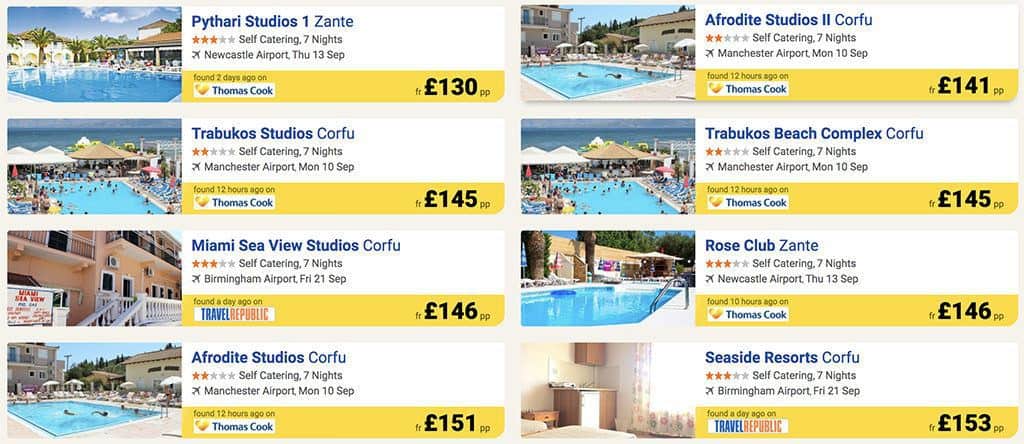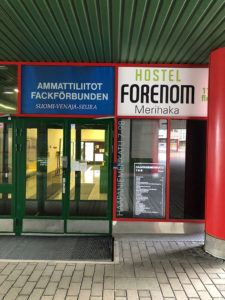I can remember when I was a broke exchange student, living in Europe. I wanted to explore but my budget was tight and needed to squeeze every penny to make it count. Finding the cheapest way to travel in Europe was addictive. It was almost a game where hunting for the best deal was exhilarating when I could get to Paris or London for as little as a Big Mac combo in Sweden.
It wasn’t called travel hacking back then but I suppose that’s what we were all trying to figure out – those of us studying and living in Europe. Over the years I’ve collected a bunch of secret tips and tricks that I’ve used to help save as much money as possible when travelling the continent. After all, why spend more money when you need to right?
So today, I’m uncovering my top tips for the cheapest ways to travel Europe.
Read more about Europe
- Ultimate Eurotrip Packing Guide
- Travel hacks – Travelling Europe for cheap
- What you need to know about river cruising in Europe
- The best SIM card for a Eurotrip
- How does Travelzoo work and are their travel vouchers worth it?
How to get the best deals in travel
- Hottest deals – Bookmark the travel deals page.
- Car rentals – stop getting ripped off and learn about car rental coupon codes.
- Hotels – Use corporate codes or get Genius 2 tier with Booking.
- Flights – Have you ever heard of the “Everywhere” feature?
- Insurance – Make sure you’re covered and learn more about where to buy the best travel insurance.
In This Article
- The Cheapest Way To Travel Europe
- Find the best budget airline deals
- Take a bus or train
- Look for packaged deals
- Scope out all your accommodation options
- Bring your student ID
- Book things in advance
- Make money while you’re away
- Take advantage of travel rewards
- Long distance carpooling
- Cooking and laundry
- Take public transit
- Get creative looking for deals
- Travel Resources For Your Next Trip
The Cheapest Way To Travel Europe
The perception is that Europe is expensive but doing it on a budget is entirely possible if you follow a few of these tips and plan ahead of time. There are many ways to save money so pick and choose where you want to fight your battles so-to-speak. One thing to keep in mind though is that there will always be some fixed costs like travel insurance that you’ll want to make sure you have.
Find the best budget airline deals

Europe is blessed with many things and one of those things are that distances between countries are small and there is so much competition in the airline industry to sell seats which ultimately drive the prices down. These smaller airlines are what are known as low-cost carriers and they’re a no frills way to get around Europe for cheap.

Sure, you’re not going to get a world-class experience and they will probably nickel and dime you for every bag and every pound you’re overweight but when flights only cost less than 50 Euros or say 25 Pounds to get from A to B, you’re laughing! In a way you get what you pay for so brace yourself for a little bit of discomfort but you really can’t complain about these ridiculously cheap fares.
Another trade-off you might have to make is that these low cost carriers sometimes fly out of smaller airports (not the big international ones) so make sure you double check before to make sure you’re going to the right one on the day of.
How do you find these cheap fares?: Your best bet is to use a search engine such as Skyscanner to find the lowest flight tickets for where you want to go. Big names to look out for are Ryanair, Easyjet, Wizz Air, Air Berlin, WOW Air, and Euro Wings
Subscribe: If you’re looking for a specific route, make sure you subscribe to price alerts. This way you get daily or weekly notifications for when prices changes. See prices bottoming out? Jump on it while you can!
Staying flexible: Use the “Everywhere” feature to keep your travel plans open ended. If you have dates in mind for a holiday but are flexible to go anywhere in Europe, just type in “Everywhere” as your destination and see what it comes up with.
Proactively get flight deal alerts: Subscribe to become a Going Awesome Places Insider and get weekly flight deals straight to your inbox. Currently departures are covered from the UK and the Netherlands if you’re already in Europe.
Check out flight deals on Skyscanner
Take a bus or train
In Europe, bus and train options are plenty and often much more efficient and cost-effective. So let’s break down these two modes of transportation and why you should consider them
The bus
Sure it’s not as glamorous as taking a jet-plane but buses are often extremely affordable and depending on where you want to go, may be the best way to get to where you need to go when you balance price, with departure options, and time to destination.
Just like the airline industry, buses have also been disrupted by low-cost companies. That’s why you hear of those incredible stories of bus fares for as little as 2 Pounds.
One company that you’ll hear dominating the scene now is Flixbus. They’ve recently acquired MegaBus for their European routes and they’re continuing to grow. With fares for as little as 5 Euros one way, you really can’t beat them on price especially when you factor in the convenience and flexibility. They have an app which makes it really easy to buy tickets and check bus schedules as well. They even have an Interflix that give you 5 European destinations for only 99 Euros. Steal!
Other bus companies to consider will be strictly regional. For instance, if you’re in the UK, there’s National Express, in France it’s SNCF, in Germany it’s DB, and in Czech Republic there’s RegioJet and so on and so forth.
Another search engine you can try to use to find the best rates is called Omio (formerly GoEuro).
So why the bus?: This is for the ultimate procrastinator or spontaneous traveller since bus fares are easy to cancel and almost always have spots available. Also keep in mind that with buses, you can get on and off near the center of the city and you don’t have to deal with airport security.
The train

The train is similar to the bus where you have the advantage of being able to hop in right in the heart of the city but you also get the added benefit of having often a much more scenic ride, is quite often faster, and offer more expansive route options. The thing is, they’re usually not that cheap so here are a few ways to keep the cost as low as possible
Book early: Train tickets work different from buses and trains. They’re usually broken down into different fare classes and they release the tickets in stages. The cheapest fare are almost always non refundable but there’s a limited number available. As you can imagine, these get snatched QUICK. While it’s hard to keep track of when these tickets are released, your best option is to try to book as early as you possibly can.
Check the regional train’s site for promotions: Train operators like DB and SNCF are running promotions all the time but they’re sometimes a bit hidden. If you take a look around their website there’s usually slightly hidden like DB’s offer page. If you take a look here, you’ll see things like group offers, super saver fares, regional offers etc. You probably didn’t know that if you travel in groups of six or more, train tickets are as little as EUR 19.90 per person in Germany.
Get a Eurail pass: If you’re going to be spending a lot of time bouncing around between cities and countries within Europe, you may be better off getting an all-encompassing pass that will cover all of your train tickets instead of buying them individually. Eurail sells passes of varying length, country coverage. This requires a bit of research on your part to see if it’s worth it. Figure out if assembling your own set of cheap non flexible tickets is cheaper than buying one pass. The big advantage of the pass is that if you’ve got one that’s valid for a month and you decide to change your travel plans, you’ve got a lot more flexibility.
Check out current deals on Eurail
So why the train?: Central train stations are well…central, there isn’t any airport security to deal with, the routes can be incredibly scenic, seats are usually much more comfortable, they’re punctual, the network is expansive, and can be very fast.
Look for packaged deals
Sometimes the best deals are the ones that come bundled together. This is where dealchecker comes in which aggregates and organizes some fo the best deals out there for those that live in the UK.
Here’s a sample grid of the deals that you can find. One of them is this last-minute deal to Zante, Greece from Newcastle for only £146 per person for 7 nights including flight and hotel. Crazy right?

Scope out all your accommodation options
Today, there are so many options when it comes to finding an affordable place to stay. A lot of it comes down to your personal preference, your length of stay, how many people you’re travelling with, and how comfortable you want to be.

Let’s run down what options you have:
- Hotel – the tried and true way that ranges from super luxurious to very run down
- Bed & breakfast – These are usually family-run boutique hotels that may or may not serve breakfast
- Hostels – The bread and butter of backpackers in Europe
- Vacation rentals – Synonymous with Airbnb, these are personal properties up for short-term rent
- Couchsurfing – The cheapest way to travel because it’s free and a great way to meet people

To make sure you’re getting the best offer, here’s what you should do:
- Decide which types of accommodations you’re okay with
- Do broad search for each type of accommodation and compare prices
- Factor in discounts such as the Booking.com $25 CAD referral promotion and Airbnb credit promo, or other active deals these platforms have
- Divide the total by how many people you’re sharing the room with
- See which type comes out on top
Now this is a bit over-simplified but the bottom line is that you should do your homework and compare prices, weigh the advantages and disadvantages of each and choose a property that gives you good overall value.
Who do I use?: I’m usually using a combination of Booking.com, Airbnb, and Hostelworld.
Travel Hack: Many promotions only apply to when you first create an account. You can get around this by signing up with your same e-mail address but either adding “+1” before the @ or move a period around. For example, a fictitious email like [email protected] is the same as [email protected] or [email protected]. All of them go to the same inbox but most systems treat these as a completely new e-mail address.
Bring your student ID
Believe it or not, your student ID has significant value when travelling in Europe. Many attractions have a student price. All you have to do is flash your card and get 20-40% off regular admission.
Book things in advance

I’ve travelled enough to know that waiting last minute for deals is an urban myth. Sometimes they come up for 9 times out of 10, you’re worse off than if you booked something earlier.
I’ve been burned too many times not buying a ticket ahead of time only to realize when I’m at my destination that something is sold out or you can only get in if you bought admission ahead of time. A few specific attractions in Europe that definitely need to be booked in advance are:
- Florence – Statue of David at the Accademia Gallery
- Barcelona – Parc Guell
- Barcelona – Sagrada Familia
- Paris – Louvre Museum
- Paris – Eiffel Tower
- Rome – The Vatican and museums
Make money while you’re away
This is a bit of an inverse from everything else so far because we’ve only been talking about how to save money. How about instead of saving money, we look at how you can passively make money while you’re away.
What I’m talking about is becoming an Airbnb host – since your flat or apartment will be empty while you’re gone, why not list it during that time and make money to fund your travels.
For instance, if you lived in Brussels and you listed your apartment for 2 for a full month, your earning potential could be 1,380 EUR. In a bigger city like London, you could be earning closer to 3,500 EUR – that should easily cover rent and then some.
Take advantage of travel rewards

I won’t get too deep into credit card hacking here but with all of those juicy travel credit cards out there and their accompanying sign up bonuses, get rewarded for spending money as you normally would back home.
For instance, if you sign up ahead of time for one of those have great Canadian travel hacking credit cards and meet your spend threshold to grab those sign up bonuses, you can then take those points or travel rewards and redeem them for that upcoming trip to Europe.
Travel Hack: If you don’t think you’ll be able to spend enough on a credit card to make the spend threshold, all you have to do is make a refundable hotel booking in the future that charges you immediately and simply cancel the booking after you’ve gotten and spent your bonus.
Long distance carpooling

Now this is something that’s new. What if there was a platform that could connect travellers with drivers that were making long distance commutes within Europe? Well that already exists and it’s called BlaBlaCar.
Depending on the availability in your region and timing, you could snag a really cheap ride to where you need to go.
Like Couchsurfing and Airbnb, it is quite established now with a system of checks and controls to make sure nothing shady happens. Many travellers use this service in Europe and it simply works.
Cooking and laundry

The two things that many don’t like to do while travelling but if you’re a pragmatist, eating food you cook yourself and wash clothes with soap and water will most definitely save you a ton of money.
Eating at restaurants in Europe isn’t always cheap and so if you can cook with basic groceries at your own accommodations, think about all those extra Euros you can save to do more exciting experiences.
Handwashing your clothes is another skill that every traveller should know. Laundromats are notorious for ripping off tourists especially in central areas. Save those Euros that you would’ve had to pay for one load and instead wash your clothes as you go along and you won’t have to worry about dirty clothes.
Take public transit

I get it, sometimes it’s tempting to hail an Uber or call a cab. If you’re super thrifty (*putting my hand up*), you’re okay to endure a little bit of inconvenience to reap the rewards of…not spending as much money.

A great example is from my recent trip to Prague. Upon landing, I could’ve easily hopped on a cab from the airport into the city but it would’ve cost 30 EUR or more. Determined to save money, I did my research and found that there was a perfectly reasonable public bus that could take me to the subway and from there I could get to anywhere I needed to. This only cost $2 CAD.
When you’re in a new country, you’ll be drawn to the easy options but if you have wifi, do a quick search and you’ll find the cheapest way to get somewhere. Public transit is almost always the cheapest and multi-day passes can work in your favour too if you’re jumping around a lot.
In many cases, I end up saving money by just walking to avoid buying a metro ticket if I only need it for one or two stops.
Get creative looking for deals
So what are other ways to find cheap deals for your upcoming trip to Europe? It really comes down to a few more creative ways that I thought I’d just throw in at the very end. It’s all about being scrappy right?
- Anytime you book something and you see a field for “promo code” or “discount code”, do a search on Google first or check out our deals page to see if something’s been posted. You just might find a free discount.
- I haven’t even mentioned car rental yet. They may not be the cheapest way to go but if you’re travelling to more remote places without dependable transit, this may be your best bet. Make sure to check out my complete list of car rental coupon codes for deep discounts.
- Travel during low season if you can. This may sound obvious but you’ll notice that prices for hotels and flights will go down when you travel at less desirable times of the year. The trade off is possibly poor weather but you could get lucky and have an amazing time without the crowds and the price tag.
I hope you enjoyed that guide on how you can travel Europe with a budget and get around for cheap. A lot of this comes from personal experience over the years. If you have any questions or your own suggestions, feel free to drop a line below!
What you should read next
Travel Resources For Your Next Trip
If you’re in the process of planning your trip and putting together your itinerary, these are genuinely the best resources that the Going Awesome Places team stands by 100%.
Credit cards: Don’t get burned by hidden fees on top of terrible exchange rates. When we travel now, we use the Wise Card. Simply load it with the currency you need before you go and use it as a regular VISA or their digital wallet card. Use their free app to track how much you have and top up when you need to.
Flights: Of all the booking search engines, Skyscanner is the most helpful and easy to use thanks to their Everywhere feature. Kayak is also another that’s we will often check as well.
Car Rental: If you’re looking to save money, these car rental coupon codes will be a true game-changer. Otherwise, DiscoverCars and RentalCars are great places to start.
Airport Parking: You’ll need a spot to leave your car at the airport so why not book a spot at a discount. Use code AWESOME7 to get at least $5 off at Airport Parking Reservations or Park Sleep Fly packages.
Data: We’ve been a huge fan of wifi hotspot devices like PokeFi because their rates are so good and you can use it globally but recently, we’ve really loved using eSIMs. The best one is Airalo. Save money by getting region-specific eSIMs and use referral code WILLIA9500 to get $3 USD credit on your first purchase. Ubigi is another one that we’ve had success with where they uniquely offer 5G coverage. Use code AWESOME10 to save 10% on your first order.
Hotels: Our go-to is Booking.com because they have the best inventory of properties including hotels and B&Bs plus they have their Genius tier discounts. The exception is Asia where Agoda always has the best prices. TripAdvisor is also useful for reviews and bookings.
Vacation Rentals: Your first instinct will be to check Airbnb but we always recommend checking VRBO as well if you’re looking for a vacation rental.
Tours: When planning our trips, we always check both Viator and GetYourGuide to at least see what’s out there in the destination that we’re going to. They often have different offerings and prices so check both.
Travel Insurance: Learn how to buy the best travel insurance for you. This isn’t something you want to travel without.
- Insured Nomads – Popular insurance provider for frequent travelers and comes with great coverage and special perks.
- RATESDOTCA – Search engine Canadians looking for the cheapest insurance including multi-trip annual policies.
- SafetyWing – A perfect fit for long-term nomads.
- Medjet – Global air medical transportation.
- InsureMyTrip – Best for seniors, families, and those with pre-existing conditions.
If you need more help planning your trip, make sure to check out our Travel Toolbox where we highlight all of the gear, resources, and tools we use when traveling.

